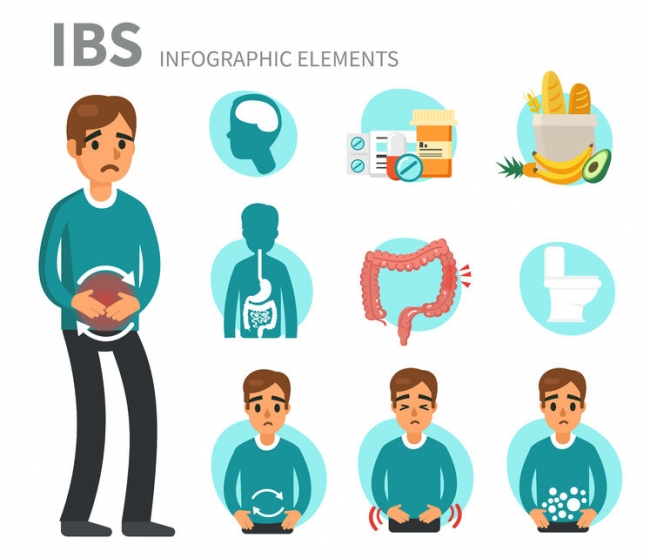Irritable Bowel Syndrome (IBS) Treatment in Estonia
Search and Compare the Best Clinics and Doctors at the Lowest Prices for Irritable Bowel Syndrome (IBS) Treatment in Estonia

Find the best clinics for Irritable Bowel Syndrome (IBS) Treatment in Estonia
No clinics available
United Arab Emirates offers the best prices Worldwide
Price: $ 228

- Home
- Estonia
WHY US?
At Medijump, we're making medical easy. You can search, compare, discuss, and book your medical all in one place. We open the door to the best medical providers worldwide, saving you time and energy along the way, and it's all for FREE, no hidden fees, and no price markups guaranteed. So what are you waiting for?

Free

Best Price

Widest Selection

Risk-Free
What you need to know about Irritable Bowel Syndrome (IBS) Treatment in Estonia

Irritable bowel syndrome (IBS) is a gastrointestinal problem causing long term and persistent discomfort that affects 10% to 20% of the population. It is rarely complicated and it is not life-threatening, however, it can change the way you live your life, interfere with your ability to take part in daily activities, and make you miss work more often. While some people may be able to control their symptoms by managing stress and making lifestyle and diet changes, others may need treatment that will let them live as normally as possible.
What Does the Procedure Involve?
Your doctor will perform some tests to rule out other diseases and determine which IBS type you have, whether it is constipation-predominant, diarrhea-predominant, or mixed. Then, after confirming their diagnosis, your doctor may prescribe medications, such as Alosetron to relax your colon and slow the movement of waste through the lower bowel, Eluxadoline to ease diarrhea by reducing fluid secretion and muscle contractions in the rectum, Rifaximin to decrease bacterial growth, and Lubiprostone or Linaclotide to increase fluid secretion in your small intestine and help you pass stool.
How Long Should I Stay in Estonia for a Irritable Bowel Syndrome (IBS) Treatment Procedure?
You should be able to leave Estonia right away if you do not experience any symptoms. However, it is best to consult with your doctor the ideal time for you to travel home as they may schedule a follow-up appointment to see how you are responding to the medications.
What's the Recovery Time for Irritable Bowel Syndrome (IBS) Treatment Procedures in Estonia?
Unless you are experiencing symptoms that interfere with your ability to perform daily activities, you usually do not need any downtime after IBS treatment.
What sort of Aftercare is Required for Irritable Bowel Syndrome (IBS) Treatment Procedures in Estonia?
After the treatment, you should not forget to take the medication that was prescribed. Your doctor may also advise you to talk to a dietitian to help you make diet changes and create the best diet plan for you. It is really important to eliminate high-gas food and gluten from your diet. Besides changing your diet, make sure to exercise regularly to stimulate normal contractions of your intestines and help you to feel better.
What's the Success Rate of Irritable Bowel Syndrome (IBS) Treatment Procedures in Estonia?
Treatment for irritable bowel syndrome is generally safe and effective as long as used as prescribed. The side effects and risks of the medications are nausea, diarrhea, and belly pain. In some cases, the medication may not be successful to improve symptoms.
Are there Alternatives to Irritable Bowel Syndrome (IBS) Treatment Procedures in Estonia?
If you do not want to take medicine because you are not an ideal candidate for it or due to your own personal preference, you can undergo hypnosis, mindfulness training, acupuncture, or take probiotics. Always make sure to talk to your doctor before you start any of these alternatives.
What Should You Expect Before and After the Procedure
Irritable bowel syndrome can seriously disturb your day-to-day activities, preventing you from enjoying the activities you love. After treatment, the symptoms should be gone and you can live a normal life.
Whilst the information presented here has been accurately sourced and verified by a medical professional for its accuracy, it is still advised to consult with your doctor before pursuing a medical treatment at one of the listed medical providers
No Time?
Tell us what you're looking for and we'll reachout to the top clinics all at once
Enquire Now

Popular Procedures in Estonia
Prices Start From $131

Prices Start From $47

Recommended Medical Centers in Estonia for procedures similar to Irritable Bowel Syndrome (IBS) Treatment

- Interpreter services
- Translation service
- Religious facilities
- Medical records transfer
- Medical travel insurance
- Health insurance coordination
- TV in the room
- Safe in the room
- Phone in the room
- Private rooms for patients available

- Interpreter services
- Translation service
- Religious facilities
- Medical records transfer
- Medical travel insurance
- Health insurance coordination
- TV in the room
- Safe in the room
- Phone in the room
- Private rooms for patients available

- Interpreter services
- Translation service
- Religious facilities
- Medical records transfer
- Medical travel insurance
- Health insurance coordination
- TV in the room
- Safe in the room
- Phone in the room
- Private rooms for patients available
Irritable Bowel Syndrome (IBS) Treatment in and around Estonia
Introduction
Estonia is a country situated on the eastern coast of the Baltic Sea in Northern Europe. Tourism in this country is often overlooked, but those who have visited agree that the country is filled with historical wonders and hidden attractions. Today, Estonia has become a popular medical tourism destination, with a growing number of people coming from Sweden, Finland, Norway, and the UK. Foreign patients usually come for orthopedic, weight loss, or plastic surgery. What attracts medical tourists to have their treatment in Estonia is the country’s affordable and high-quality healthcare. With skilled surgeons, excellent medical centers, and incredible vacation opportunities, it is easy to see why Estonia is becoming more and more popular. Many of the board-certified surgeons in the country continue their training abroad and the private hospitals are armed with advanced technology.
Popular Cities and Regions in Estonia
The capital of Estonia is Tallinn and it charms visitors with its lively yet peaceful vibe, UNESCO-listed Old Town, photogenic sights, ancient churches, and medieval streetscapes. The city is perfect for those looking for some relaxation and pampering as it has a number of Day Spas. In addition, Tallinn is filled with delightful food and vibrant modern culture, making it the perfect place to visit. Besides Tallinn, another popular place to visit is Tartu, which is the second-largest city in the country. As a premier university town, this city is the place where Estonian doctors and surgeons study medicine. Tartu is a very historic city and also has a vibrant nightlife.
Transport in Estonia
Tallinn International Airport is the largest airport in Estonia that serves flights to and from major cities in Europe and the Middle East, such as London, Copenhagen, and Dubai. Getting around Estonia can be done by bus or train. While the rail network is limited and affordable, buses are fast and efficient. Big cities in the country have an efficient public transportation system and taxis are widely available. It is also worth pointing out that the whole country is bicycle-friendly.
Visas in Estonia
Since Estonia is a member state of the Schengen Area, holders of passports from 62 countries, including the US, the UAE, Japan, and Australia can enter without a visa for up to 90 days. Other countries not listed in the visa waiver agreement need to apply for a Schengen visa to enter.
Weather in Estonia
The summer months of June to August have the highest temperatures, with sunny and long daylight days. Spring (March to May) and autumn (September to October) is a great time to visit the country as the weather is very pleasant. Winter, from November to February, can be freezing as the temperatures plummet and the snow starts to fall. The weather in this country is very changeable.
Additional Info
- Local Currency: Estonia adopted the Euro (EUR) in 2011. 1 EUR is approx. 1.08 USD.
- Money & Payments: ATMs can be found in all cities and credit cards are widely accepted. Tipping is expected.
- Local Language: The official language is Estonian but Russian and English is widely spoken. Some people in the country also speak Finnish and German.
- Local Culture and Religion: More than half of Estonia’s population is non-religious. The religious population is mainly Christian.
- Public Holidays: Estonia celebrates various public holidays, including Independence Day, Good Friday, Easter Sunday, Spring Day, Pentecost Sunday, Victory Day, Independence Restoration Day, and Christmas Day.
Popular Searches
- Plastic Surgery in Thailand
- Dental Implants in Thailand
- Hair Transplant in Thailand
- Breast Augmentation Thailand
- Gastric Sleeve in Thailand
- Gender Reassignment Surgery in Thailand
- Laser Hair Removal in Bangkok
- Botox in Bangkok
- Dermatology in Bangkok
- Breast Augmentation in Bangkok
- Coolsculpting in Bangkok
- Veneers in Turkey
- Hair Transplant in Turkey
- Rhinoplasty in Turkey
- Stem Cell Therapy in Mexico
- Rhinoplasty in Mexico
- Liposuction in Mexico
- Coolsculpting in Tijuana
- Rhinoplasty in Korea
- Scar Removal in Korea
- Gastric Sleeve in Turkey
- Bone Marrow Transplant in India
- Invisalign in Malaysia
- Plastic Surgery in the Dominican Republic
- Tummy Tuck in the Dominican Republic
- Plastic and Cosmetic Surgery in Poland
- Rhinoplasty in Poland
- Hair Implant in Poland
- Dental Implants in Poland
- IVF in Turkey